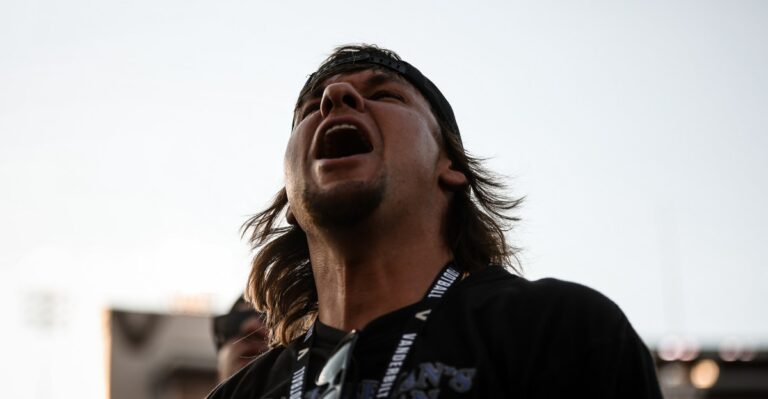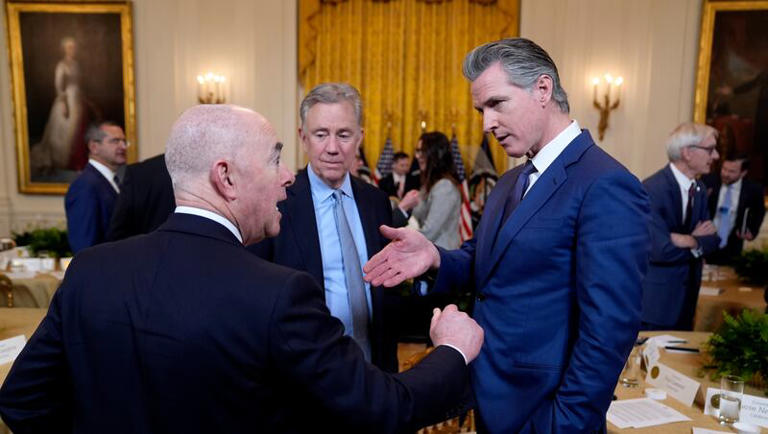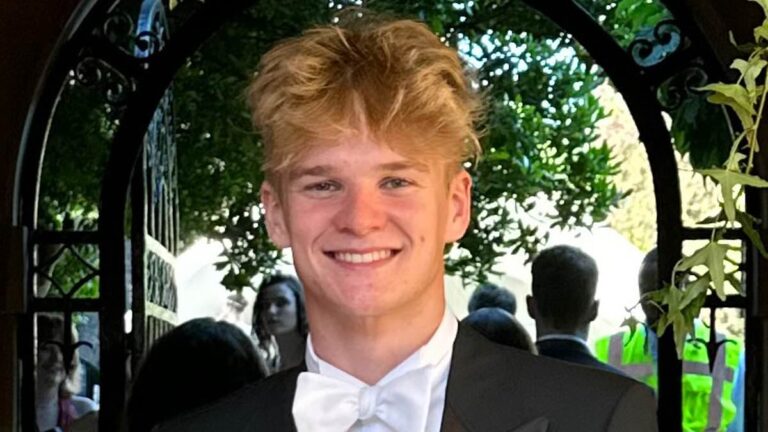Trump, Vance, and Rising Anti-LGBTQ Attacks Explored
Trump, Vance, and the Surge of Anti-LGBTQ Sentiment
In recent months, we’ve witnessed a whirlwind of political discourse surrounding LGBTQ rights, particularly in the wake of statements and actions from figures like Donald Trump and Republican Senate candidate J.D. Vance. For many, these developments are more than just headlines—they represent alarming trends in our society. But what exactly is happening? Why are these attacks on LGBTQ individuals intensifying, and what does it mean for the future? Buckle up as we dive into this complex and important conversation.
The Landscape of Anti-LGBTQ Sentiment Today
First, let’s set the stage. Anti-LGBTQ sentiment isn’t new; it’s a disturbance that has echoed through history, manifesting in various forms, from legislative measures to social discrimination. However, we’ve seen a marked shift in recent years, and it’s crucial to understand the context.
The Roots of Modern-Day Hostility
In a world increasingly leaning towards acceptance, where rights are being recognized and celebrated, it feels like someone hit the brakes hard. The emergence of right-wing populism, particularly under the Trump administration, fostered an atmosphere ripe for regressive ideas. Messages that once lurked in the shadows of political discourse have been thrust into the mainstream.
Is this backlash a reaction to progress? You bet. Research suggests that social changes often provoke resistance, sparking a battle over societal norms. Critics argue that leaders like Trump and Vance are using anti-LGBTQ rhetoric as a political tool, playing on fears and misconceptions to galvanize their base. But let’s break it down a bit more.
Trump’s Influence on Anti-LGBTQ Rhetoric
Trump’s Radical Strategy
Donald Trump’s presidency marked a significant shift in how LGBTQ issues were discussed in political arenas. His administration rolled back numerous protections for LGBTQ individuals, often justified by the rhetoric of “religious freedom.” This supposed safeguard is frequently invoked to legitimize discrimination, and it hasn’t stopped with Trump’s exit from the White House.
With a political style described as flamboyant and confrontational, Trump didn’t just take the stage; he redefined it. His ability to control the narrative, often leaning heavily on polarizing topics, has left many within the LGBTQ community feeling targeted and marginalized. He has subtly energized anti-LGBTQ sentiment among his followers, making catchy slogans and contentious statements that stick in the minds of many.
Turning Point: J.D. Vance Emerges
Enter J.D. Vance, a rising star in the Republican Party and a vocal supporter of Trump’s brand of politics. As he campaigns for the Senate, Vance has leaned heavily on anti-LGBTQ themes, harnessing the energy of the Trump-centric base.
By positioning himself as a defender of “traditional values,” Vance has adopted rhetoric that calls into question the legitimacy of LGBTQ identities. His statements often suggest that these are not just personal choices but threats to societal stability. Sounds familiar, doesn’t it? This rhetoric doesn’t just polarize; it emboldens individuals who wish to partake in harassment or discrimination.
Case Study: The Response from the LGBTQ Community
You’ve got to wonder: how do folks affected by this hostility react? For many in the LGBTQ community, it’s not just alarming; it’s personal. They’re living the consequences of flippant political discourse. Just imagine how frustrating it must be to witness hard-fought rights being eroded by people in power.
Activism has surged. Organizations dedicated to LGBTQ rights are mobilizing their resources, battling against this tide of negativity, and offering support to those in need. They’re not taking this lying down, and that’s where hope blooms amidst the chaos. But let’s be real; this isn’t just about responding; it’s about survival.
The Impact of Anti-LGBTQ Policies
Legislative Battles
Take a look across various state legislatures, and you’ll see a disturbing trend. Anti-LGBTQ bills are being introduced at alarming rates, often under the guise of “protecting children” or “preserving family values.” These policies can range from banning gender-affirming healthcare for trans youth to prohibiting discussions about LGBTQ topics in schools.
- Increased Scrutiny: Policies get extreme scrutiny from legislators looking to make a political point.
- Suppressing Education: Education becomes a battlefield, where LGBTQ topics are actively silenced.
It raises the question: is this really progress? Or are we regressing into darker times?
The Societal Impact
Beyond the political arena, the atmosphere of hostility has real-life implications. Whether it’s increased bullying in schools, mental health issues spiking among LGBTQ youth, or the chilling effect it has on open discussions, every action breeds a reaction. Living authentically is hard when societal forces push back.
Imagine a young trans person hearing such rhetoric daily. It’s like trying to swim upstream in a river that gets stronger the more you struggle.
The Role of Allies
As alarming as these attacks are, the power of allyship cannot be overlooked. Allies play a crucial role in countering anti-LGBTQ sentiment. From speaking out against discriminatory policies to standing by friends and family members, every little gesture counts.
What Allies Can Do
- Educate Themselves: Knowledge goes a long way. Understanding the LGBTQ community enhances compassion and reduces ignorance.
- Speak Up: Use your voice! Whether it’s commenting on social media or advocating in public forums, vocal opposition to discrimination can help shift narratives.
- Support LGBTQ Organizations: Allying with organizations working to protect LGBTQ rights strengthens the cause.
By being good allies, individuals can pave the way for a more supportive and inclusive society.
A Closer Look at the Future
The Consequences of Continued Attacks
The path forward seems daunting, with the rise of anti-LGBTQ rhetoric and legislation. Yet, amidst the turmoil, many remain hopeful. Societal perspectives are shifting. LGBTQ visibility is increasing, and narratives once hidden in the shadows are coming to light.
But the future holds many uncertainties. How far will these attacks go? Will they spark a larger movement for inclusive policies?
The Power of Resilience
Resilience is a theme that rings true in the LGBTQ community. History has shown that while setbacks can occur, the fight for rights is far from over. Each battle lost is a lesson in strategy for the next.
Keep this in mind: progress often comes in waves. When someone pushes against the tide, it can lead others to rise. The surge of activism in response to anti-LGBTQ sentiment has the potential to awaken even more allies to join the fight.
Conclusion
In conclusion, the landscape of LGBTQ rights is as tumultuous as ever, with figures like Trump and Vance fanning the flames of division. Their rhetoric targets an already marginalized community, and the consequences are felt on a personal level by countless individuals. However, there’s strength in unity and resilience in activism, creating sparks of hope in the face of daunting challenges.
As we navigate this complicated world, it’s essential to remain informed and engaged—because change starts with us. If we stand together, we can usher in a society that values equality and acceptance for everyone, regardless of who they love or how they identify.
FAQs
1. What specific anti-LGBTQ policies have been introduced recently?
Many states have introduced bills that block gender-affirming healthcare for minors, ban discussions about LGBTQ topics in schools, and restrict participation in sports.
2. How can allies effectively support the LGBTQ community?
They can educate themselves, speak out against discriminatory practices, and support organizations dedicated to LGBTQ rights.
3. What is the psychological impact of anti-LGBTQ rhetoric?
Such rhetoric can contribute to increased mental health issues, increased bullying, and feelings of isolation among LGBTQ individuals.
4. Are there any political figures who are actively supporting LGBTQ rights?
Yes, numerous political figures and organizations advocate for LGBTQ rights, working to push back against regressive policies.
5. How can individuals contribute to creating a more inclusive society?
By educating themselves, advocating for equality, and supporting marginalized voices within the LGBTQ community, individuals can help foster a more inclusive culture.






